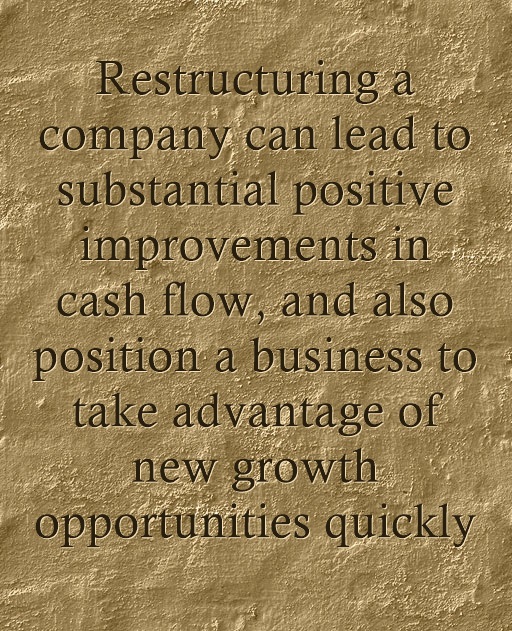Founders and owners of privately-held companies are experienced, proud, and capable people who have shown that they possess the drive, fortitude, and business smarts to start a company and then to lead it through the period of its early growth. Business consultants are strategic partners that allow business owners to strengthen the skill-sets already present in their business.
While owners demonstrably have the organizational and leadership skills to get a business off the ground, in many cases these attributes, unfortunately, can also tend to work against them as well. Having mastered a wide variety of sales, marketing, operations, product (or service) development challenges during the startup phase, many owners are reluctant to admit – or worse, unable to recognize – when the business landscape has changed that presents threats beyond their competence, or which requires a knowledge base other than what they have developed up until this time.
Small business owners are forced by circumstances to become a jack-of-all-trades. However, in many cases while their portfolio of responsibilities is extensive, their depth of experience can at the same time be quite shallow…or their range of expertise is limited to working within a single industry. Owners are typically highly skilled at fire-fighting, which they do on a daily basis, and as a result, have finely honed tactical decision-making abilities.
However, as deeper structural business-related issues arise, or when the business reaches an inflection point in its growth trajectory, many owners find themselves outside of their depth. Good tactical skills do not necessarily result in the ability to formulate a strong strategic vision. Tactical skills have a time horizon measured in hours and days, while strategic vision has a horizon that can last from months to years. People who are used to making short-term decisions with near-immediate results often find it difficult dealing with issues that will take lengthier periods to resolve or to show tangible outcomes.
It is at this time when it makes sense to call in a business consultant, a professional who has the knowledge and experience managing meaningful business transformation initiatives or leading critical restructuring efforts. The average competent consultant has seen a wide range of best practices and solved a large number of complex business challenges. Consultants have typically worked in multiple industries, and thus seen policies and practices beyond those usually dominant in a single sector. This variety of experience and skill is what gives a consultant his or her value when working with a business owner.
 It is clear that there are two times it is critical to call a consultant for help.
It is clear that there are two times it is critical to call a consultant for help.
1) Changes to the external environment. These changes can be in the form of new competitors, the introduction of new (or disruptive) technologies, significant shifts in customer preferences, or alterations in the regulatory environment. These changes typically prompt business leaders to consider restructuring as a means of streamlining operations, cutting costs, rationalizing the organization, rolling out new products, or remaining competitive via increased efficiencies or revised go-to-market strategies. For example, changes in retailer purchase preferences can prompt a consumer products company to rethink its distribution strategy to maximize the relationship with its channel partners.
2) Changes to the internal environment. If a company merges with or buys another business, or becomes over-leveraged through the acquisition of significant debt loads, these can cause substantial internal business challenges. Mergers and acquisitions often necessitate a large-scale restructuring to promote a smooth integration of the businesses, while high financial leverage or unsustainable debt levels often force companies to reorganize operations to minimize their financial exposure. Additional internal factors that can compel restructuring are poor management and the failure to execute on critical initiatives (including the inability of management to achieve its strategic goals), the inability to integrate new product lines, or a failure to motivate their workforce.
At Cogent Analytics, we never stop looking for ways to improve your business and neither should you. So, check out some of our other posts for helpful business information:



